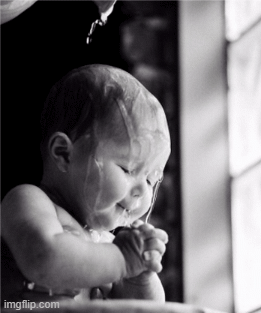The book raises the fascinating question: How could Jesus, living 500 years after Buddha and 3,000 miles away, embody teachings so similar in nature to his predecessor?
Some historians believe that Buddhist principles had filtered through the Roman Empire by the time of Jesus.
Still others suggest that Jesus may have visited India during "the missing years" - a period in his teens and early 20s when there was little documentation about his life.
A more likely explanation, Borg said, is that the similarity in their sayings mirrors the similarities in their experiences. The Buddha, after a six-year religious quest, had an enlightenment experience under the Bo tree; Jesus' quest led him to the wilderness and his spiritual mentor, John the Baptist. Both began renewal movements within their respective, inherited religious traditions - Hinduism and Judaism.
"The similarities of their wisdom teaching may flow out of the similarity of their religious experience," Borg said.
https://today.oregonstate.edu/archives/1998/mar/new-book-looks-parallel-sayings-jesus-buddha



